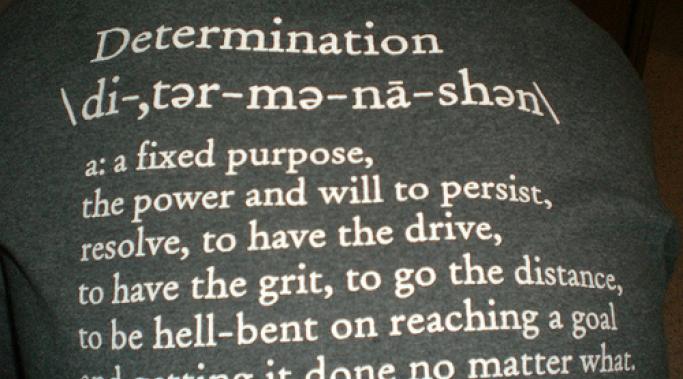How do I explain anxiety to my spouse, lover, friends?
I really don't think you can do it without first coming to grips with the idea that the people we love may never fully know, and probably won't "get it" the way we hope. But that doesn't mean they can't be valuable allies in managing anxiety issues.
Treating Anxiety
Determination helps me overcome anxiety. White-knuckled stubbornness. Hours spent thinking to myself, "anxiety cannot win." Sometimes this is rather like yelling at the sea to stop making so many waves but in spite of that, it works for me. For a trait that's usually frowned upon, stubbornness, determination, has its uses to overcome anxiety.
Clearly, psychotherapy doesn't work for everyone. Some more than others. The bigger question, the real question, is why it works at all.
What don't you have if you're struggling with anxiety? Emotional health. Not the most earth-shattering statement but pertinent, all the same. Do you really know what's missing, though? I'm not always sure.
You don't look sick! No, I don't. It shouldn't be an accusation, either. One of the worst parts of having an anxiety disorder, or any other invisible illness, is how hard it is to explain to someone when they don't have the first notion. It becomes almost a routine battle, feeling sick on the inside while knowing the world thinks you look fine.
Anxiety likes to keep us in boxes. Little boxes, with four walls and a steady stream of same, same, similar, same. Don't stray too far now. Don't, should, must,... and after a while your mind stops using the windows, let alone the door.
As a friend of mine pointed out, there was a weird thing happening in cyberspace this week: People were rationing grief. Portioning it up like that really can be done, like any of us could put a cap on sadness, anger, denial, fear.
Fear denied, repressed, suppressed, or put out of mind is not fear extinguished.
Treating anxiety: 'as if'
I've been told that acting 'as if' I'm not nearly as anxious as I am is a helpful thing. It's also dangerous. As with almost any technique sometimes is fine but if you're anything like me and you'll do whatever you have to do to be able to put your anxiety aside and function, and if what you want is to go on with as much of life as you can, uninterrupted by fear, then it can become destabilizing.
"The meds don't work!" I hear it a lot. From rational people. It's shorthand, a way to tell me that psychiatry has failed them. Unfortunately it's also used as a vantage point from which to argue that psychiatric medications are universal bunkum. I find this insulting; It implies those taking medication for mental health issues are at least a little clueless, prone to hypochondria. One step barely removed from calling the lot of us hysterics. So much for a century of scientific research and advocacy.
Psychiatric treatment is a relationship between you, your mental illness, your drugs, and your doctor(s). That relationship is what matters most when it comes to ensuring medications treat actual mental health issues.
Taking the meds out of clinical practice and studying them in a lab is not only difficult but results in mixed outcomes. The kind we see reflected in the studies which the press pick up on.
Just this week I've read that the drugs don't work, that it's all a big fraud, and that the next Big Pharma pill will cure everything.
Psychiatry, like democracy, is the worst form of treatment except for all the others that have been tried








